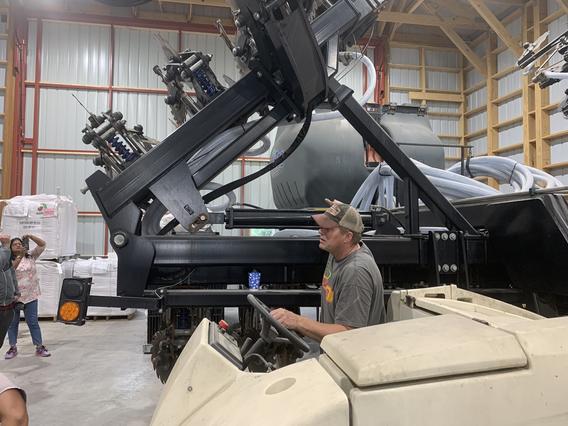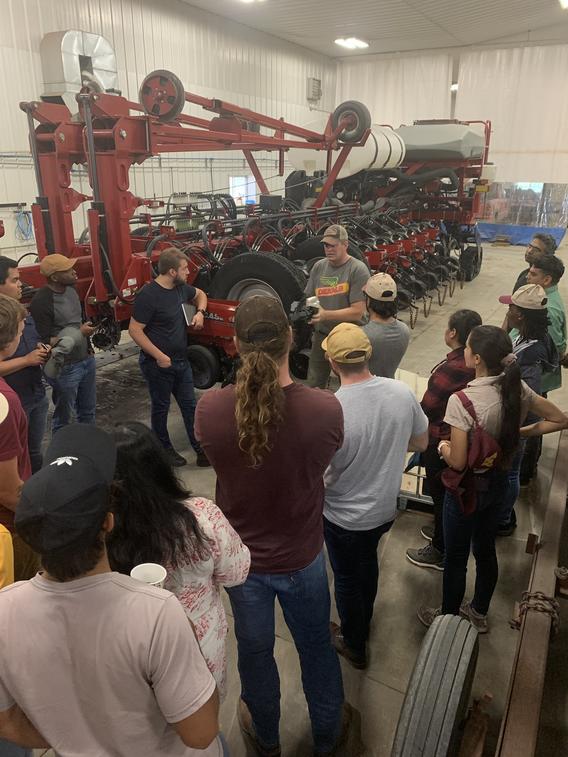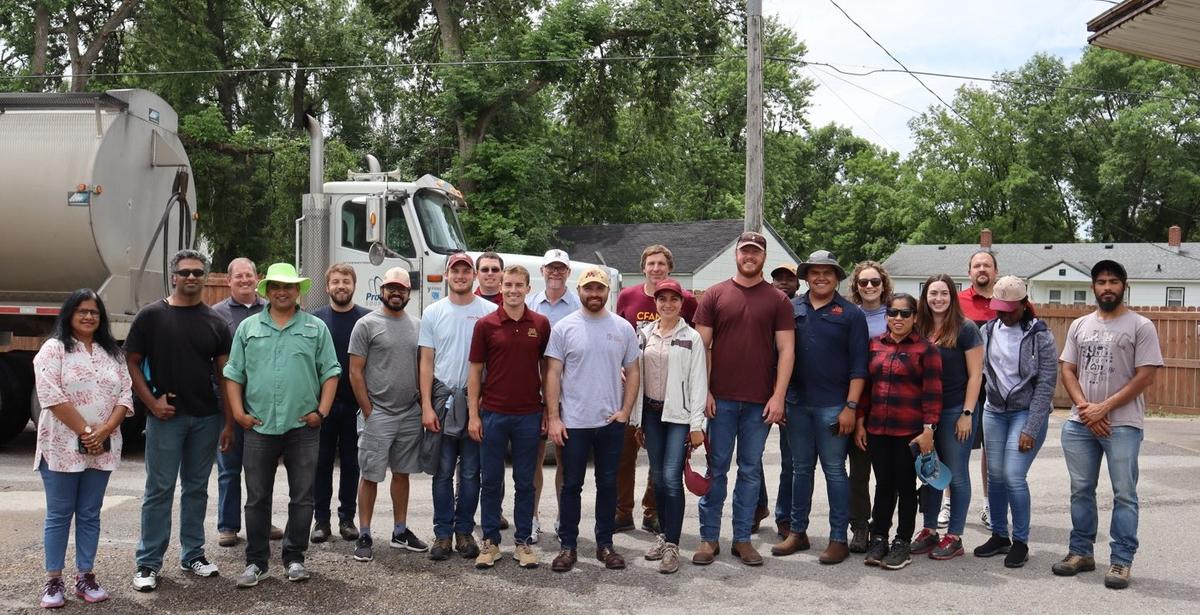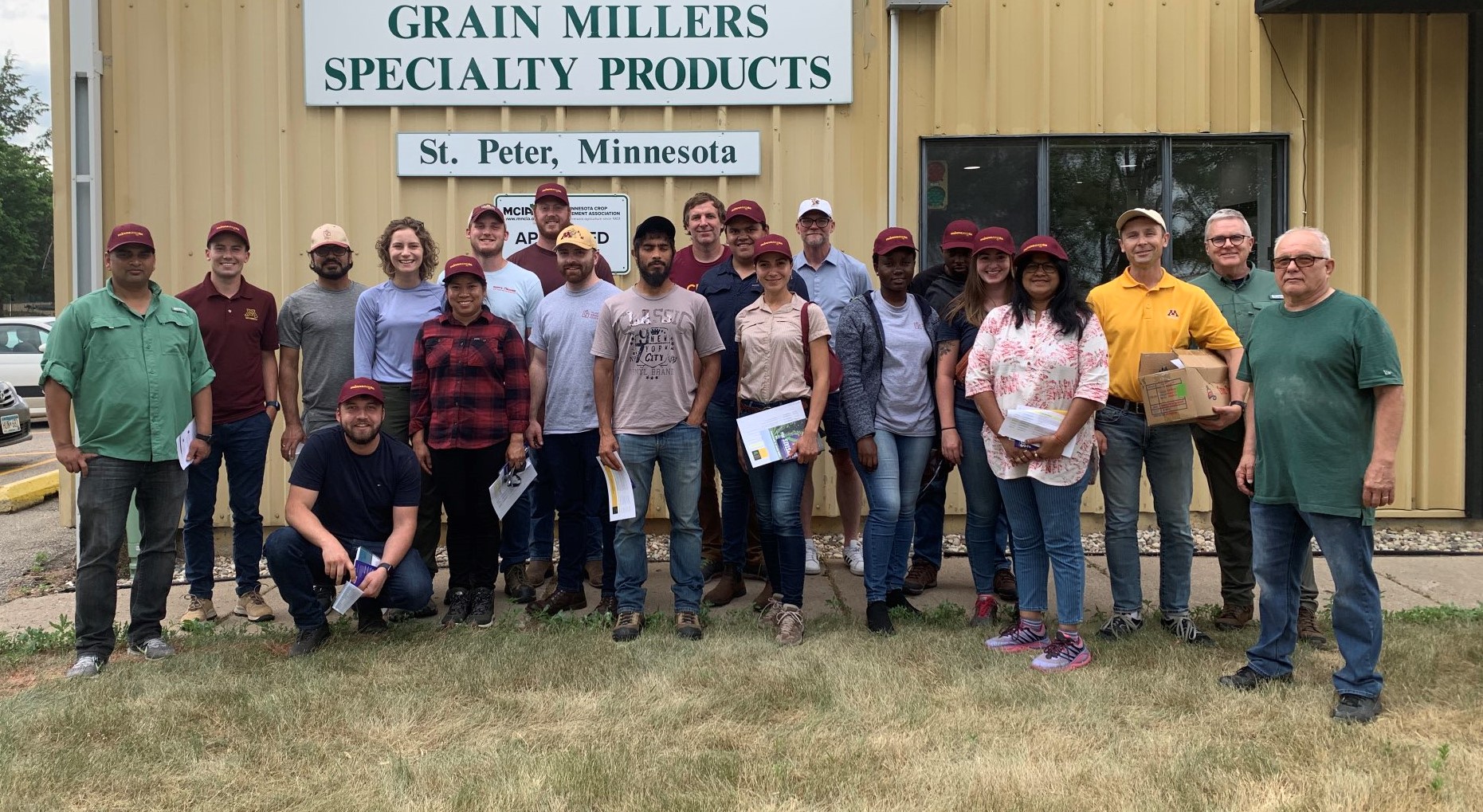Bus trip through southern Minnesota delivers value across many UMN departments that work to improve soybeans.

To benefit graduate and postdoc students’ experience beyond the research lab and classroom, the U of MN Soybean Research Center (SRC) guided a bus tour of southern Minnesota soybean agriculture for 20 students on July 30, 2022.
Hands-on learning from farmers, the seed industry and soybean processing supply chain companies provided a broad overview of the soybean industry in Minnesota.
"The field trip was a wonderful opportunity to get students and postdoctoral research associates off the St. Paul campus and into Minnesota to gain first-hand knowledge of soybean agriculture. It's easy for our grad students and postdocs to focus narrowly on their campus projects. So, making opportunities like help to broaden their perspectives,” says Aaron Lorenz, co-director of SRC and professor in the Soybean Breeding & Genetics department. “It also allowed them to network with one another as there was a good mix of academic departments and disciplines present.”
Getting students out of their diverse departmental silos and labs to share experiences across different soybean research disciplines is one of the missions of SRC. “For students who don’t come from farm backgrounds, we provided a worldview of soybeans to put perspective on the product they are helping improve,” says Seth Naeve, the other co-director of SRC and professor in the Agronomy & Plant Genetics department.
Farm and Seed Dealer tour
The first tour stop in the Albert Lea area was at the farm and seed business of Darin Johnson near Wells. Johnson showcased the advanced metering, monitoring and data gathering technology on every row of today’s planters. He demonstrated how farmers use field maps and satellite data on an iPad to improve crop production by field area, environmental quality and decision making.

As a seed dealer, Johnson engaged the students with discussions of seed traits, genetics, bulk packaging, storage and soybean seed treatments applied right on the farm. And he answered many questions that addressed agronomic aspects like strip-till, variable-rate planting density and issues like white mold and IDC.
Feed business tour
The next stop was at Protein Sources in Mapleton, which produces swine feed. Again, great discussion surrounded sourcing materials like corn, soybean meal and DDGs. “This visit provided students and postdocs with a look inside a feed mill and a greater understanding of how the ethanol industry has become an important feed ingredient in the overall supply chain,” Naeve adds.
Specialty grain company tour
The final leg of the tour provided a glimpse into the specialty soybean and other grain markets. At Grain Millers in St. Peter, students learned how this international agri-business produces whole grain manufacturing and merchandising, organic and conventional consumer food products, and the import and export of commodities.
Graduate student Carlos Sanchez was impressed by the whole tour. "My exposure to the soybean agriculture and processing industry in rural Minnesota during this field trip helped me gain a more comprehensive awareness of the problems and concerns associated with soybean production and use," he says.
“This important tour covered a broad base of the soybean industry. “We talked to a farmer that produces the grain and sells seed. A feed mill that uses the grain to feed pigs. And then a grain processor and national/global exporter, providing students with a first-hand look at the soybean value chain,” Naeve adds.
Lorenz and Naeve are grateful for the students, companies and a farmer who participated and thankful for their time to educate and interact with the students.
As student James Bowden summed up, "The trip helped demonstrate the massive industrial scale across multiple supply chain levels required within our current agricultural system to feed us, our livestock, and the global demand for soy.”

